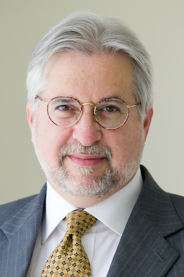Profile
I was born and grew up in the New York City area, but spent most of my adult life in California before moving to Japan in 2007. I joined the Global Business faculty at AIU in the Fall Term of 2017. Previously I taught law and politics in the College of Law and Politics at Rikkyo University in Tokyo, from 2012-2017. Since 2012 I've also been training managers at various Japanese multinational corporations in how philosophical ideas (such as from Aristotle, Edmund Husserl and others) can apply to corporate management. And since 2015 I've been a lecturer at Keio University Law School.
Although my academic career began relatively recently, I bring to my teaching over 30 years of experience as a business lawyer and business executive, including more than 20 years in Silicon Valley, Los Angeles and Wall Street. I've worked at global law firms and multinational companies, as well as in my own solo law practice and technology consultancy. My legal specialties are in contract negotiation and business transactions, and especially in transactions involving intellectual property (patents, copyrights, etc.) and in the development of new technology. On the purely business side, I was a Vice President in the Strategic Venture Investment Department at Sony, an in-house venture capital group, and have also served as a director of a small start-up company in Japan. Since 2008, I've maintained an office as a registered foreign lawyer (California, USA) in Morioka, Iwate Prefecture, and have advised large public companies, SMEs (small/medium-sized enterprises), and municipalities engaged in international transactions. To my knowledge, this is the only such office in Tohoku, where I've lived full-time since 2015.
My original idea for a career was in science, and I concentrated in physics as an undergraduate in the 1970s. Aside from remaining an interest I enjoy to this day, this background has been surprisingly useful professionally, particularly during my years in Silicon Valley and at Sony. I also had thoughts of being a writer when I was young. Right after college I was a classical music reviewer for a Boston weekly newspaper for a year or so; but that career path soon reached a dead end when I moved back to New York, a highly competitive market for writers. However, I got a second chance almost 30 years later when I became a columnist for Nikkei Business Publications. Between 2005 and 2009 I published more than 80 columns on law, management and economics in Nikkei Business Associé and Nikkei Business Management. To date, I've also published 5 books in Japan, one of them co-written with my wife. (She has also translated everything I've published in Japanese from my English-language manuscripts, and has herself had a long career as a sarariiman in Japan and the US and as a successful entrepreneur in Japan.)
Message to Students
During my decades in the business world, I've experienced two patterns I hadn't expected. One is that it's very difficult to predict what will be useful in one's career. Rational plans and goals can sometimes be blocked. But an interest that you simply enjoy, even if it seems entirely irrelevant to business, sometimes can open up new paths for you.
I was once offered a position as head lawyer of a movie studio in Los Angeles because, in addition to being a lawyer, I could speak some Italian. But the reason I'd learned Italian was to read Italian poetry. Another time I became a co-inventor on a patented invention because I could find and fix a mistake in a client's description of the invention. But the reason I could find it was that I'd been reading some physics for fun the night before.
Whether you enjoy poetry or physics or ballet or surfing or movies or something else, maintaining a passion (or several) throughout your life is extremely important. In some cases, it might open a door in your career. But even if it doesn't, you'll have a hobby that can be a source of relaxation and even joy in your life.
The other pattern is that regardless of how good you are at your job, you're vulnerable to economic forces that are larger than you. I more than once lost my job due to global economic conditions, or due to the earnings performance of the company I worked for. The fact that I'd been receiving salary raises and good performance reviews was irrelevant. This has been a growing trend since the 1990s. Many of you should expect to lose your job at least once, too.
In that situation, just having a focused set of skills isn't enough. Having broad interests and a liberal arts education is what enabled me to change, adapt, and get a new position better than the one I had lost. Those experiences of job loss also made me very aware of the impact of business practices on employees, business partners, and communities.
These life experiences have had a direct impact on my teaching at AIU. Traditional business education focuses on certain techniques of corporate management and strategy, and how to achieve maximum profit. But 'business' and 'management' aren't at all the same thing. Real business has a broad range of social, ethical, political and environmental impacts that shape the world we live in. A business curriculum ought to consider those impacts, and to make them more visible to you in your roles as employee and citizen. That is the mission of my courses.
In order to achieve this, I rarely stick to traditional academic boundaries: the real world doesn't, either. All of my courses have some mixture of science, literature and/or philosophy along with the main subject matter. If you're looking for a conventional business administration course, you probably will find my courses frustrating. But if you have an open mind and are willing to work hard, you may find my courses more fun and more stimulating than the usual approach.
|



